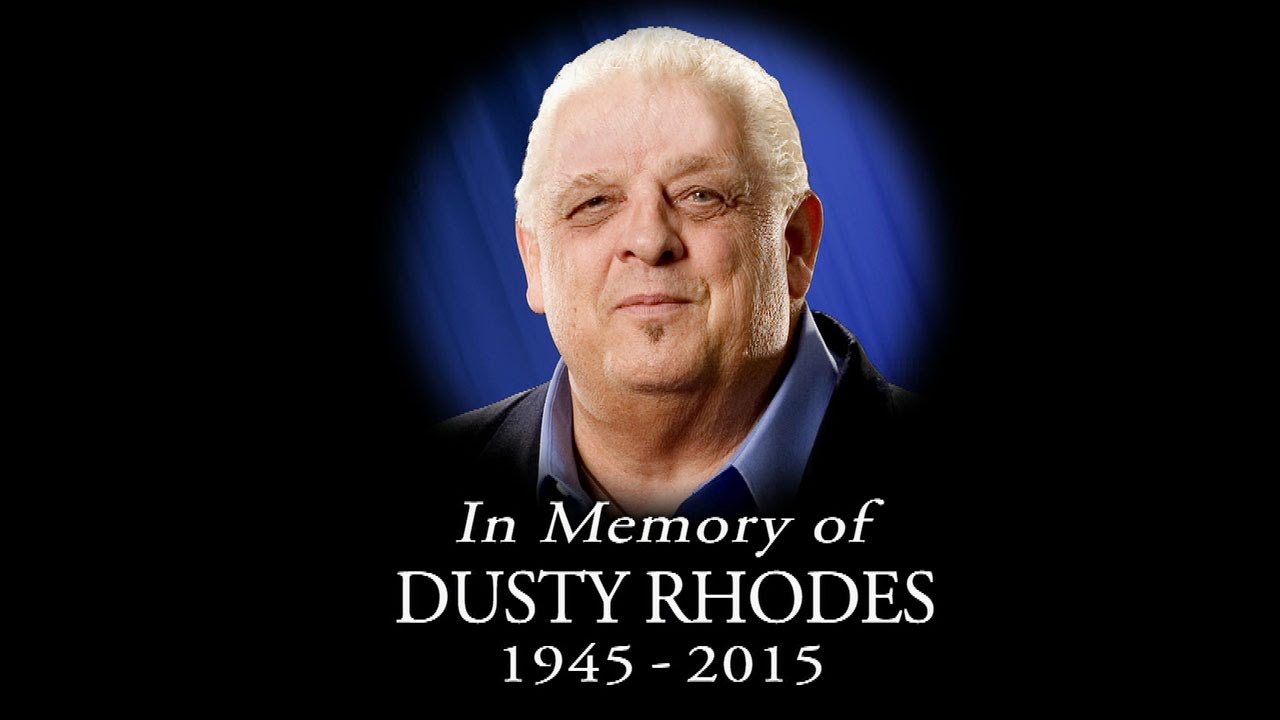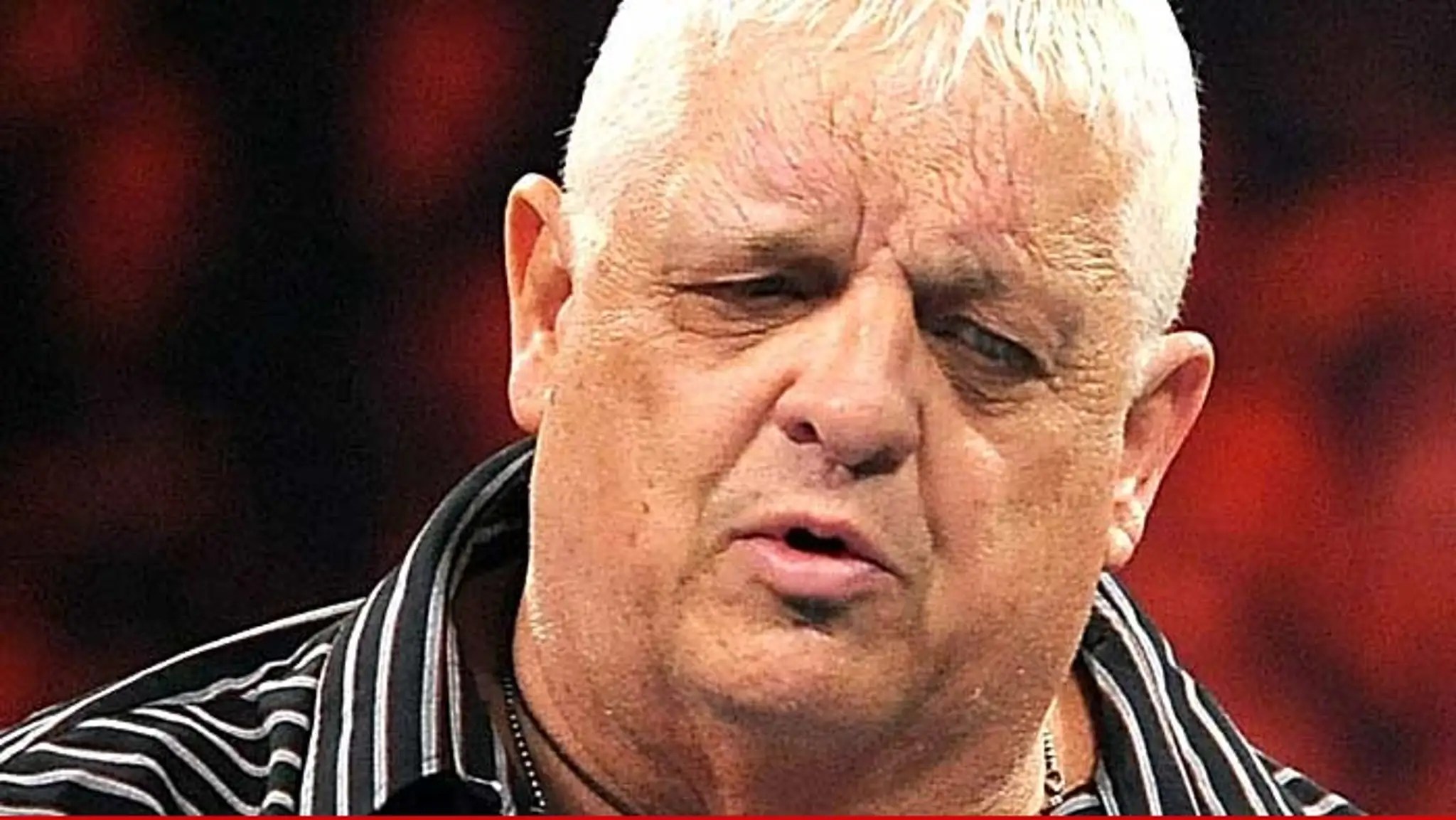Dusty Rhodes died from complications of a kidney transplant on June 11, 2015. He was 69 years old.
Rhodes had been suffering from kidney problems for several years and had received a transplant in 2012. However, his body rejected the new kidney and he was forced to undergo dialysis. In 2015, he was hospitalized with a severe infection and died a few weeks later.
Rhodes was a wrestling legend who held numerous championships during his career. He was also known for his charisma and his signature move, the "Bionic Elbow." His death was a major loss to the wrestling community.
What did Dusty Rhodes die of?
Dusty Rhodes died from complications of a kidney transplant on June 11, 2015. He was 69 years old.
- Kidney transplant: Rhodes had been suffering from kidney problems for several years and had received a transplant in 2012.
- Rejection: His body rejected the new kidney and he was forced to undergo dialysis.
- Infection: In 2015, he was hospitalized with a severe infection and died a few weeks later.
- Wrestling legend: Rhodes was a wrestling legend who held numerous championships during his career.
- Charisma: He was also known for his charisma and his signature move, the "Bionic Elbow."
- Loss to the wrestling community: His death was a major loss to the wrestling community.
Rhodes' death is a reminder of the importance of organ donation. Kidney disease is a serious problem, and many people die each year waiting for a transplant. If you are healthy, please consider becoming an organ donor.
| Name | Dusty Rhodes |
|---|---|
| Birthdate | October 12, 1945 |
| Birthplace | Austin, Texas |
| Deathdate | June 11, 2015 |
| Deathplace | Orlando, Florida |
| Occupation | Professional wrestler |
Kidney transplant
Dusty Rhodes' kidney transplant in 2012 was an attempt to address his long-standing kidney problems. However, his body rejected the new kidney, leading to complications that ultimately contributed to his death in 2015.
Kidney transplants are a common treatment for people with kidney failure. However, they are not always successful. The success rate of a kidney transplant depends on a number of factors, including the recipient's age, overall health, and the compatibility of the donor kidney.
In Rhodes' case, his body rejected the new kidney because it was not a good match. This led to a number of complications, including infection and organ failure.
Rhodes' death is a reminder of the importance of organ donation. Kidney disease is a serious problem, and many people die each year waiting for a transplant. If you are healthy, please consider becoming an organ donor.
Rejection
The rejection of Dusty Rhodes' new kidney was a major setback in his battle against kidney disease. Dialysis is a temporary treatment that can help to remove waste products from the blood, but it is not a cure. Rhodes was forced to undergo dialysis for several years until he received a second kidney transplant in 2015.
The rejection of a kidney transplant is a serious complication that can lead to death. In Rhodes' case, the rejection led to a number of complications, including infection and organ failure. He died in 2015 at the age of 69.
Rhodes' death is a reminder of the importance of organ donation. Kidney disease is a serious problem, and many people die each year waiting for a transplant. If you are healthy, please consider becoming an organ donor.
Infection
The infection that Dusty Rhodes contracted in 2015 was a major factor in his death. His immune system was weakened by his kidney problems and the anti-rejection drugs he was taking, making him more susceptible to infection.
The infection spread throughout his body, causing organ failure. He was hospitalized for several weeks, but his condition continued to deteriorate. He died on June 11, 2015, at the age of 69.
Rhodes' death is a reminder of the importance of infection control. People with weakened immune systems are at greater risk of infection, and it is important to take steps to prevent infection, such as washing hands frequently, avoiding contact with sick people, and getting vaccinated.
Rhodes' death is also a reminder of the importance of organ donation. Kidney disease is a serious problem, and many people die each year waiting for a transplant. If you are healthy, please consider becoming an organ donor.
Wrestling legend
Dusty Rhodes' status as a wrestling legend is directly connected to his death. The physical toll of his wrestling career, including the injuries he sustained and the wear and tear on his body, likely contributed to his kidney problems and other health issues that ultimately led to his death.
Rhodes' wrestling career began in the 1960s, and he quickly rose to fame. He was known for his charisma and his signature move, the "Bionic Elbow." Rhodes held numerous championships during his career, including the NWA World Heavyweight Championship and the WCW World Heavyweight Championship.
However, Rhodes' wrestling career also took a toll on his body. He suffered numerous injuries, including a broken neck and a torn rotator cuff. He also underwent several surgeries, including knee replacement surgery and back surgery.
The physical toll of Rhodes' wrestling career likely contributed to his kidney problems. Kidney disease is a serious condition that can lead to death. Rhodes was diagnosed with kidney disease in 2011, and he received a kidney transplant in 2012. However, his body rejected the new kidney, and he died in 2015 from complications of kidney failure.
Rhodes' death is a reminder of the importance of taking care of your health. If you are a wrestler, it is important to take steps to protect your body from injury. You should also get regular medical checkups to screen for any health problems.
Charisma
Dusty Rhodes' charisma was a major factor in his success as a wrestler. He was able to connect with audiences on a personal level, and his fans were drawn to his larger-than-life personality. His charisma also helped him to overcome the physical challenges he faced during his career.
For example, Rhodes was diagnosed with kidney disease in 2011. This was a serious health condition, and it forced him to retire from wrestling. However, Rhodes continued to make public appearances, and he remained a popular figure in the wrestling community.
Rhodes' charisma also helped him to cope with the pain and suffering he experienced in his later years. He never gave up hope, and he continued to inspire others with his positive attitude.
Rhodes' death in 2015 was a great loss to the wrestling community. However, his legacy continues to live on. He is remembered as one of the most charismatic and beloved wrestlers of all time.
Loss to the wrestling community
Dusty Rhodes' death was a major loss to the wrestling community. He was a beloved figure who had inspired generations of wrestlers and fans alike. His death left a void that will be difficult to fill.
- Rhodes was a role model for many wrestlers. He was a hard worker who never gave up on his dreams. He also had a great sense of humor and was always willing to help others.
- Rhodes was a great ambassador for wrestling. He was always willing to talk about the sport and its benefits. He also helped to promote wrestling to new audiences.
- Rhodes was a beloved figure by fans. He was known for his charisma and his ability to connect with people on a personal level. Fans were drawn to his larger-than-life personality and his genuine love for the sport.
- Rhodes' death has left a void in the wrestling community. He was a unique individual who will be greatly missed.
Rhodes' death is a reminder of the importance of cherishing the people we love. He was a special person who made a positive impact on the lives of many people. He will be remembered as one of the greatest wrestlers of all time.
FAQs about Dusty Rhodes' Death
Dusty Rhodes was a professional wrestler who died in 2015 at the age of 69. His death was a major loss to the wrestling community, and many people are still wondering what caused it.
Question 1: What did Dusty Rhodes die of?
Dusty Rhodes died from complications of a kidney transplant.
Question 2: Why did Dusty Rhodes need a kidney transplant?
Dusty Rhodes had been suffering from kidney problems for several years. He received a kidney transplant in 2012, but his body rejected the new kidney.
Question 3: What are the complications of a kidney transplant?
The complications of a kidney transplant can include infection, rejection, and organ failure.
Question 4: What are the symptoms of kidney disease?
The symptoms of kidney disease can include fatigue, swelling, high blood pressure, and difficulty urinating.
Question 5: How can I prevent kidney disease?
You can prevent kidney disease by eating a healthy diet, exercising regularly, and avoiding smoking and excessive alcohol consumption.
Question 6: How can I help someone who has kidney disease?
You can help someone who has kidney disease by providing emotional support, helping them with their diet and exercise, and encouraging them to take their medication.
Summary of key takeaways or final thought:
Dusty Rhodes' death is a reminder of the importance of organ donation. Kidney disease is a serious problem, and many people die each year waiting for a transplant. If you are healthy, please consider becoming an organ donor.
Transition to the next article section:
Read more about Dusty Rhodes' life and career.
Tips for preventing kidney disease
Kidney disease is a serious problem that affects millions of people worldwide. It can lead to kidney failure, which can be fatal. However, there are a number of things you can do to prevent kidney disease, including:
Tip 1: Eat a healthy diet.
A healthy diet is low in sodium, saturated fat, and cholesterol. It also includes plenty of fruits, vegetables, and whole grains. Eating a healthy diet can help to keep your blood pressure under control and reduce your risk of heart disease, both of which can damage your kidneys.
Tip 2: Exercise regularly.
Exercise helps to keep your blood pressure under control and improves your overall health. Aim for at least 30 minutes of moderate-intensity exercise most days of the week.
Tip 3: Avoid smoking.
Smoking damages your blood vessels and increases your risk of heart disease and stroke. Both of these conditions can damage your kidneys.
Tip 4: Limit alcohol consumption.
Excessive alcohol consumption can damage your liver and kidneys. Men should limit their alcohol intake to two drinks per day, and women should limit their intake to one drink per day.
Tip 5: Get regular checkups.
Regular checkups can help to detect kidney disease early, when it is most treatable. Talk to your doctor about how often you should get a checkup.
Summary of key takeaways or benefits:
Following these tips can help to prevent kidney disease and protect your overall health.
Transition to the article's conclusion:
Kidney disease is a serious problem, but it can be prevented. By making healthy lifestyle choices, you can reduce your risk of developing kidney disease and live a long, healthy life.
Conclusion
Dusty Rhodes' death from complications of a kidney transplant is a reminder of the importance of organ donation. Kidney disease is a serious problem, and many people die each year waiting for a transplant. If you are healthy, please consider becoming an organ donor.
Rhodes' death is also a reminder of the importance of taking care of your health. If you have kidney problems, it is important to follow your doctor's orders and take your medication. You should also make healthy lifestyle choices, such as eating a healthy diet and exercising regularly.
Unveiling Omar Emiliano Chaparro: A Journey Of Laughter, Culture, And Impact
Unveiling The Private Life Of Miranda Richardson: Discoveries And Insights
Unveiling The Ownership Secrets Of NBC And MSNBC



ncG1vNJzZmislZawqbHRa2WapaNoe6W1xqKrmqSfmLKiutKpmJydo2OwsLmOsJ%2BarF2ZtqV5w66qrbFdp7WwsMSsZJ2hlWK8p3rHraSl